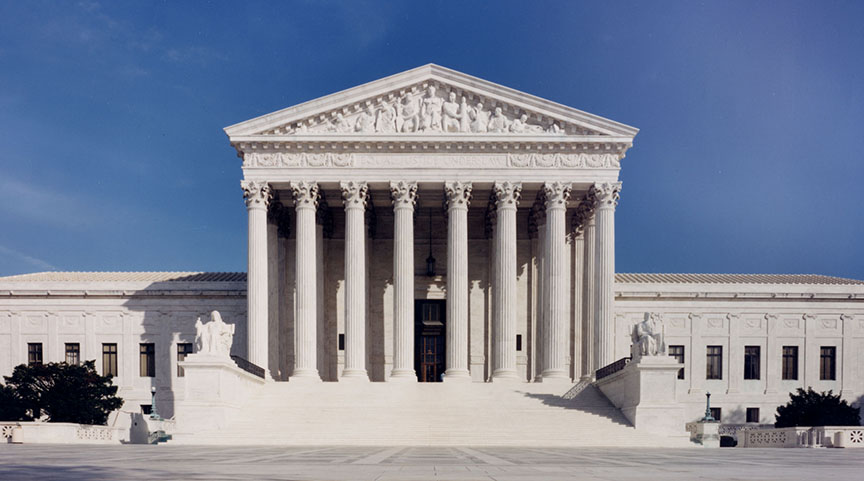
- Details
- By Brian Edwards
- Health Care
A major win for tribes at the Supreme Court last week could come with a hefty price tag for the federal government and a funding headache for Indian Health Service.
In a 5-4 decision, the high court ruled on June 6 that the federal government needs to reimburse tribes for the overhead costs they incur when spending money from Medicaid, Medicare and private insurers. In its opinion, the court majority said tribes deserve these reimbursements for the so-called Contract Support Costs (CSC) under the Indian Self-Determination and Education Assistance Act (ISDA).
Tribal advocates hailed the decision.
“Today’s decision is a victory for tribal self-determination and tribal sovereignty,” National Congress of American Indians (NCAI) President Mark Macarro said last week in a statement. “This ruling ensures that Tribal Nations administering healthcare services to their citizens and communities do so with the full funding to which they are entitled under federal law and contracts with the Indian Health Service.”
Sen. Brian Schatz (D-HI), chairman of the Senate Committee on Indian Affairs, called the decision “a huge win for Indian Country, and a powerful reminder of the federal government’s trust and treaty obligations to Tribal Nations.”
“Tribal governments know the needs of their people,” Francys Crevier, CEO of the National Council of Urban Indian Health, said in a statement. The decision will benefit and assist Tribes operating under self-determination contracts with IHS and additional funding will be allocated within IHS’ budget to pay contract support costs related to Tribes using third-party revenue for administering their healthcare programs, the statement notes.
The decision in the tribes’ favor means they won’t have to cut back healthcare programs funded with third-party revenues. That’s a major win.
But here’s the catch: the government will now owe the tribes more money to cover these programs. That will have major funding implications that will require a significant increase in the amount of funds provided for CSC by Congress, according to a statement by the National Indian Health Board (NIHB).
The federal government estimates the new costs could range from $800 million to $2 billion annually. This adds to recent budget cuts to IHS services and facilities, raising concerns of a funding squeeze for other crucial areas.
In a statement issued after the court’s decision, IHS Director Roselyn Tso said the agency “has been preparing for this possibility in order to ensure the transition to new CSC-related systems will cause minimal disruption to those we serve.”
William "Chief Bill" Smith, chairman of the NIHB, which backed the tribes in an amicus brief, emphasized the need for congressional action to fully realize the decision's impact.
“This is a win for tribal sovereignty,” Smith said in a statement. “Now, in order to honor this decision, Congress must properly include these Contract Support Costs in future appropriations to not increase the burden on an already underfunded IHS budget.”
To pay for it all, Congress might have to either cut funding from other parts of the IHS budget, or give the IHS more money overall. The latter approach would certainly fall within the realm of honoring the trust and treaty obligations due to tribes.
The NIHB offers a solution: transition these new costs to mandatory spending, ensuring stable funding without impacting other IHS programs. This approach aligns with the Biden administration's position.
“It’s well past time to properly fund the Indian Health Service,” NIHB’s Smith said. “Mandatory appropriations is the path to health equity and full support for Tribal sovereignty, and the time for that is now.”
